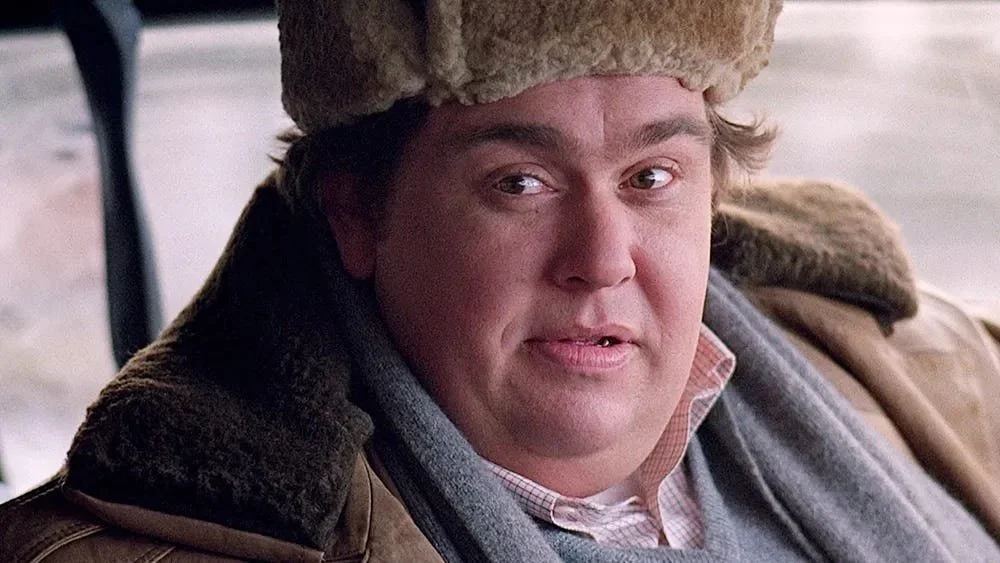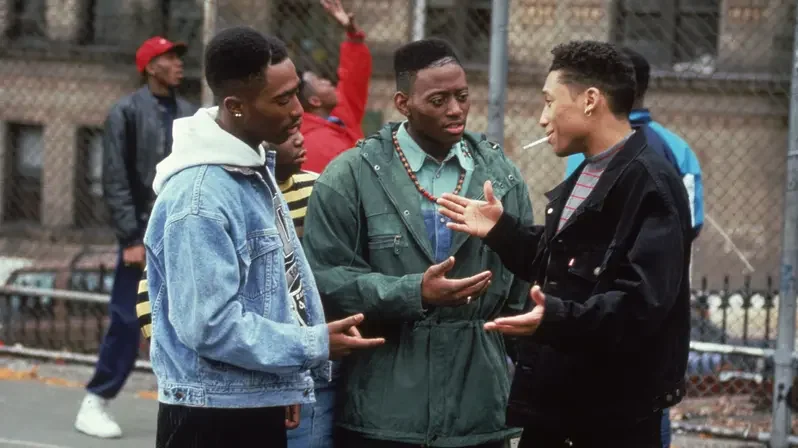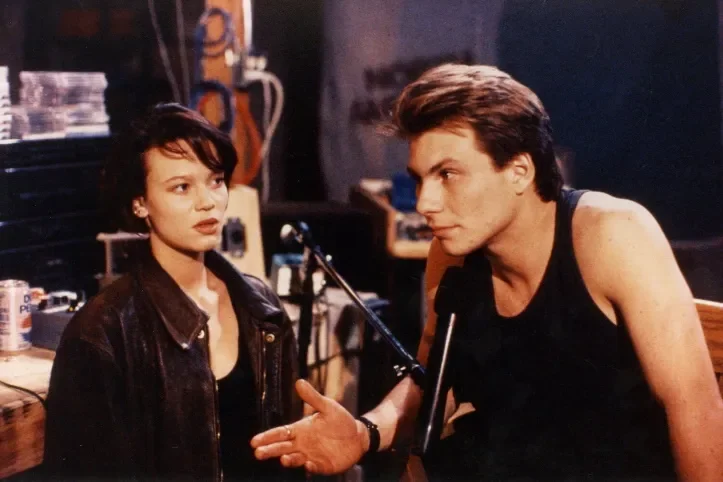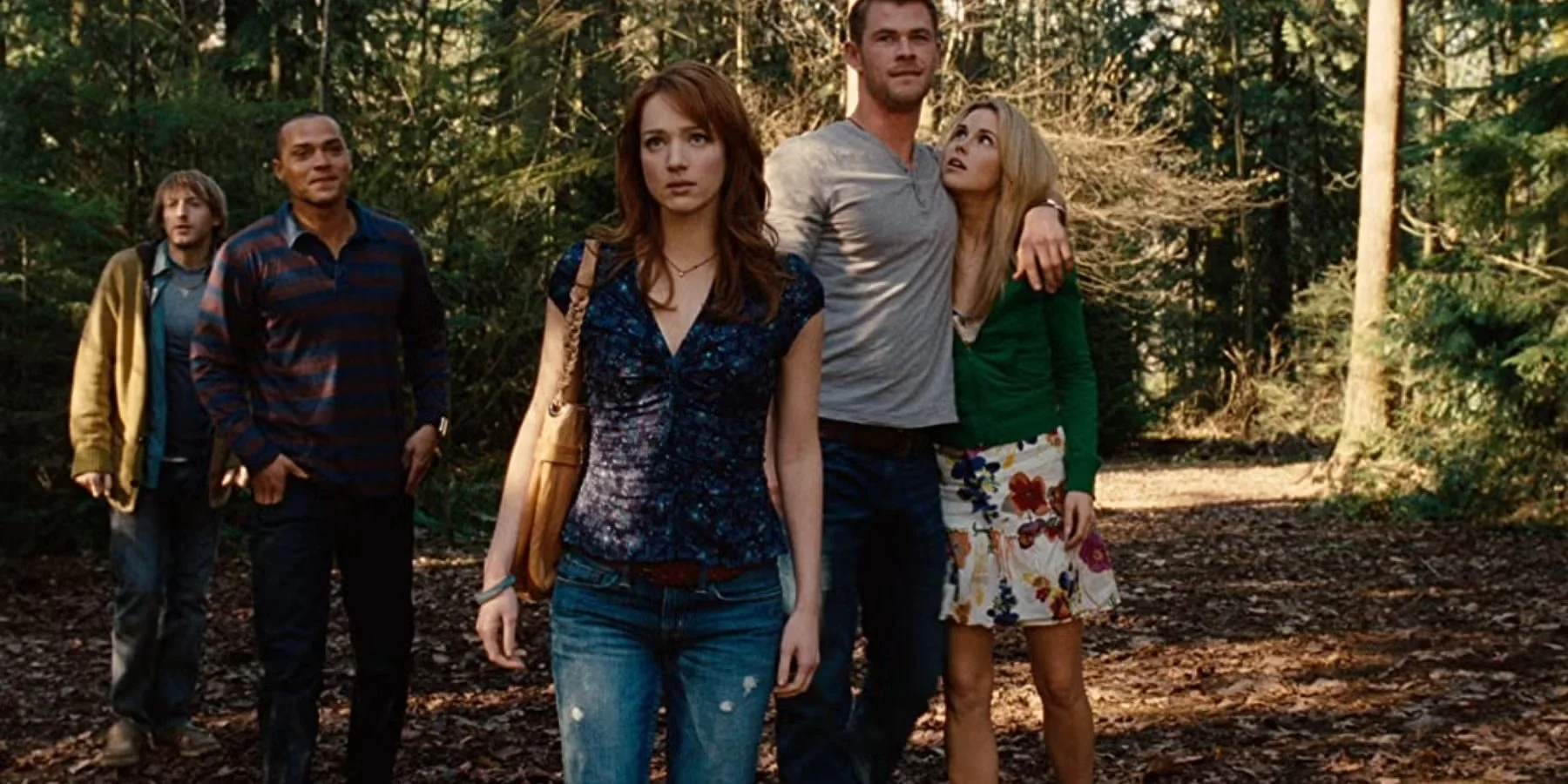Uncle Buck
(John Hughes, 1989)
⭐️⭐️⭐️ 1/2
Watching movies with older eyes is a funny thing. As I write this review, I’m 43 years old and a month away from turning 44. Several films I saw as a child are still high on my list of all-time favorites, while others have aged like rancid milk. That is just a product of the passing of time, changing tastes, and seeing things with a more experienced perspective. Some films might have made me laugh as a 8 year old but not as a 43 or 44 year old. The films that do keep their comedic strengths decades after I first watched them are special to me. It is a sense of justification that my younger self did have a defined sense of humor and understood when comedy could eventually be universal throughout the decades. One of those films that still holds a great sense of comedic strength with me is “Uncle Buck”, the 1989 John Candy vehicle and family comedy from John Hughes. “Uncle Buck” is a comedy that could have fallen flat but is elevated by talents of its star and director, who both show an evolution in their craft.
“Uncle Buck” tells the story of Buck Russell (John Candy), a carefree bachelor living in Chicago and enjoying a life of no responsibilities. He has a relationship with Chanice Kobolowski (Amy Madigan), but he strings her along and dodges any attempts to settle down and be really serious about a lifetime together. Buck also hangs with a sketchy crew of friends, friends who are quick to try and include Buck in things like a fixed horse race. While Buck is enjoying this journey though life, his brother Bob (Garrett M. Brown) is facing a crisis. He has recently moved from Indianapolis to the squeaky clean Chicago suburbs with his wife Cindy (Elaine Bromka), his older daughter Tia (Jean Louisa Kelly), his younger daughter Maizy (Gaby Hoffman), and son Miles (Macauly Caulkin). The family, especially Tia, is cracking due to the move. Tia is 15 and angry about everything, especially the move from everyone the family knew in Indianapolis to Chicago. She takes this out mostly on her mother, who seems to be buckling under the pressure. Things come to a head when Cindy’s father suffers a heart attack, and she is forced to go back to Indianapolis with Bob to attend to the family crisis. This leaves the family with the “difficult” choice of asking Buck to look after the kids. It is a difficult decision because Cindy, who is as uptight as they come, does not care for Buck’s lifestyle. There is no other choice for the Russell family, so Buck agrees to come to the suburbs and take care of Tia, Maizy, and Miles.
The plot of “Uncle Buck” really kicks into gear when Buck arrives in the suburbs, and Hughes dabbles in the fish out of water approach from both ends. Buck adjusts to his new and quaint settings, a far cry from his bachelor pad in inner city Chicago. The family adjusts to this new presence in their lives, a presence who is rough around the edges, does things a little bit differently, but is ultimately good hearted. Maizy and Miles think their uncle is weird, but they warm up to him and his unorthodox style. The one who does not warm up to him is Tia, and that leads to the film’s central conflict. Buck butts heads with Tia as the two engage in a battle of wills. Tia learns that dealing with Uncle Buck is not exactly like dealing with her mother. Buck, on the other hand, learns that having a family and responsibilities can in fact be a blessing even though it presents conflicts with a life that includes things such as fixing horse races. All sides have to learn to deal with a new dynamic in the family structure.
No one can properly talk about “Uncle Buck” without devoting the most praise to Candy’s performance. Candy has to carry the film with his charm, otherwise, it would descend into a rather dark story about a suburban family falling apart due to the strains of life. He nfuses the “Uncle Buck” with a never ending sense of likability and warmth, even though Buck is a bit sketchy and hangs out with even sketchier people. Buck, regardless of his faults, s a good person at heart, and he genuinely cares about the family. That comes out with Candy’s performance. Buck wants to do well by the family and show that he is not the screw up that Cindy or even Chanice thinks he is. Like a lot of his roles, Candy infuses his performance as Buck with a childlike sense of fun, and this comes across in his often hilarious interactions with Hoffman as Maizy and, especially, Caulkin as Miles. Candy, of course, can turn that tone on a dime, such as when he has to stand up for Maizy to an incredibly unlikable school administrator. Buck’s monologue to that administrator is fueled with righteous fury for his niece, and he finishes it off with a comedic line that makes me laugh to this day. The scene where Buck is conflicted about taking the two younger kids to the horse track is another gem that shows Candy’s range. His real talents, however, come out when Buck has to deal with Tia and all of her teenage angst, strife, and anger. Cindy might not be able to reach her daughter, but Buck seems to get a good hand on things, at least in his own perspective. Buck’s scenes with Tia, such as any of the ones where Buck has to confront her about her creep of a boyfriend “Bug” (Jay Underwood) are generally gold. The two are equally a challenge to each other, and the conflicts they have are a delight to watch, especially when it reaches a comedically satisfying solution.
I cannot remember when I first watched “Uncle Buck”, but it would have been very shortly after the film’s release in 1989. It might not have been a movie I saw in a theater, but my family and I watched it a great deal on VHS. We did so for a lot of John Candy movies. Like those other John Candy movies, we loved “Uncle Buck”. All the broad comedic strokes employed by Hughes and Candy worked for us. It was a film we watched numerous times over the years and enjoyed each time. Now that I am older, I was happy to revisit the film. Most of it still held up, again, thanks to Candy’s performance and Hughes’ direction. I can appreciate seeing how Hughes evolved away from his teenage set films in the mid 1980s to the more adult comedies, such as “Uncle Buck” or “Planes, Trains, and Automobiles” beforehand. It was intriguing to see Hughes employ some distinct visual flares and shot choices with a film that, in lesser hands, would have been presented as straight forward as a network sitcom. I also appreciated how well Candy and Hughes handled the tone of the film, especially since it could have gone down a rather darker path. It is a testament to the talents of both that “Uncle Buck” holds up as well as it does for a film set in upper-middle class suburban Chicago of 1989. While “Uncle Buck” is not a perfect film by any stretch of the imagination, it is still one that is worth a watch to revisit how good John Candy was in a role like Buck Russell. HIs talents are sorely missed.
This review is part of my From the Vault series showcasing movies of the past I have decided to visit or revisit and review.





Atomic Blonde” presents a visually sleek, stylized, and dynamic look at Berlin just before the fall of the Berlin Wall while featuring a soundtrack as killer as its lead actress.